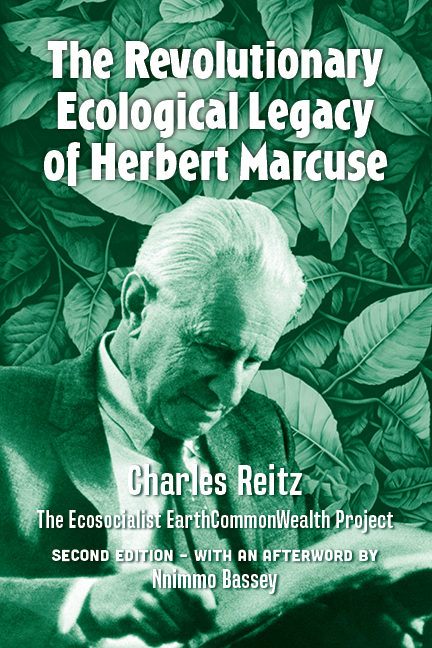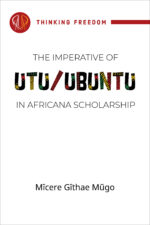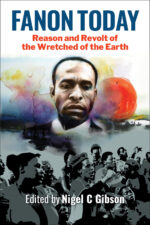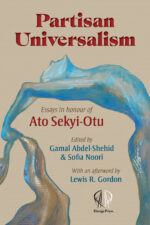It is entirely fitting that in this fine book, those engaged in the radical praxis of healing are movements that are subverting the institutions of private property as a path to an emancipated society. Fanon’s legacy today is kept alive in their struggle. Raj Patel, Frantz Fanon’s revolutionary spirit lives on
Coming sixty years after the publication of The Wretched of the Earth and his death from leukemia at the age of 36, Fanon Today: Reason and Revolt of the Wretched of the Earth, edited by activist and scholar Nigel Gibson, provides a solid overview of the relevance of Frantz Fanon to the work of those of us who still believe that a just and humane world is both necessary and possible. Throughout the volume the contributors provide space and examples of a Fanonist development of radical humanism, which provides for the psychological development of the person within the context of consciousness raising, collective action and structural change. Through a variety of examples, the book also clearly demonstrates the fact that the agents of change do not simply have to be the usual suspects of the industrial working class but includes – and must include – the peasantry and the various manifestations of the lumpenproletariat. As noted by Gibson, “Fanon’s new humanism is a politics of becoming, based on the fundamental transformation of paralyzed Black and colonized subjects into new human beings through the liberation struggle” (p. 300). Timothy Wild, Review of African Political Economy. Dec 6, 2021.
This monumental compendium of cosmopolitical provocations and decolonial insights does more than just correct the misreadings that have threatened recently to engulf and mystify Fanon’s work. These exhilarating essays and commentaries put his incendiary contribution back where it belongs: in the insurgent speculations and reconstructive efforts of creative thinkers struggling to transform the imperiled predicament of our planet. —Paul Gilroy, founding Director of the Sarah Parker Remond Centre for the Study of Race and Racism at University College London
*This is a wonderful book. It succeeds in extracting Fanon’s thought (the Wretched/Damned of the Earth in particular) from the realms of academia, Cultural Studies and Afropessimism and to locate it squarely where it originally belonged: within the domain of political practice, outside of which it makes very little sense. In academic reading, one remains a prisoner of the limits of the text itself; in a political reading, the text becomes a vehicle for addressing the problems raised by active militancy. Gibson has succeeded in bringing together an international array of brilliant contributors who all prove to be eloquent witnesses to the continued relevance of Fanonian concepts—such as the Manichean character of (neo)colonialism and racism, the corrupt nature of the so-called ‘national bourgeoisie’ and the continued relevance of ‘national consciousness’—in the contemporary expanded reproduction of racial capitalism on a world scale. What is particularly fascinating is the way in which intense studies of Fanon’s writings within the United States carceral system and South African informal settlements among other locations have enabled the production of political thought that takes Fanonian dialectical categories beyond their original subjective context, into concrete political practices combining the necessary experiences of particular struggles with conceptions of universal freedom. This is a militant work for militant readers. —Michael Neocosmos, Emeritus Professor in Humanities, Rhodes University, South Africa.
*
There is not one time, not one aspect of the world’s experience, that does not give credence to Fanon’s precepts. Our collective human history has taught us that the human is bound to face attempts to crush her or his integrity, to condemn them to despicable exploitation, treacherous oppression. It is in the very nature of that experience that we have learned how Fanon shall never die. For his precepts and action remain always universally relevant. This is also what Fanon Today affirms. The book is fundamentally relevant and useful. It reminds us that in the face of exploitation and repression, the human and the humanist will always find ways to combat those. Dense and eclectic, strategically thought out and organized, critically stimulating, this book is as incisive as it is compelling. —Hanétha Véte-Congolo, President of the Caribbean Philosophical Association
*
In this collective labor of love of the here and the now, voices of the damned—that pathologized, incarcerated, and evicted majority of the world’s population—rise! From Algeria to Brazil, Ireland to Kenya, Palestine to Portugal, South Africa to Trinidad and beyond, they are breathing life into and actively humanizing our precious and oh-so-fragile earth. Meeting brutal structural violence with the courageous construction of democratizing institutions that nurture mental health, well-being, and solidarity, Fanonian praxis emerges in each chapter. Evincing a thoughtful agency that questions everything, the volume forges new relations spanning generations and locales. Through it, sixty years since the publication of Les damnés de la terre, Fanon’s insights reach out to us, beckoning us to carry on the tireless work of building a world of the “we.” —Jane Anna Gordon, author of Statelessness and Contemporary Enslavement
*
Coming out of the pandemic, the greatest challenge is how we express our anger, how we make it a digna rabia, a “dignified rage”, as the Zapatistas say. Fanon must be part of the answer. This magnificent collection of essays helps us to focus our minds on that challenge, to direct our anger to the task of making a different world. An important book, an exciting book. —John Holloway, author of We are the Crisis of Capital: A John Holloway Reader
*
Fanon Today: Reason and Revolt of the Wretched of the Earth, edited and cordinated by Nigel C Gibson, gives the opportunity to several intellectuals and activists with different backgrounds from Brazil to Algeria, from Pakistan to South Africa, to tell how the struggle against injustice and racism inscribe itself into the continuity of the Fanonian visionary legacy. Not to be missed! —Hassane Mezine, Photographer, Film Director of Fanon hier, aujourd’hui
*
This is an indispensable book. It brings together many among the overlooked communities for whom Fanon actually wrote—the dispossessed, the downtrodden, the organic voices rising from the depths of misery on the verge of despair. What better way to commemorate the six decades since the publication of Les damnés de la terre than to remind readers of that great work that the people in solidarity with whom its ideas were generated not only speak but also write? Read and learn from these voices as, in those proverbial revolutionary words, the struggle continues. —Lewis R. Gordon, author of Freedom, Justice, and Decolonization
*
In Fanon Today, Nigel Gibson brings to life the Fanonian project of exploring the implications of radical theory in contemporary sites of struggles. This groundbreaking book commemorates the 60th anniversary of the Wretched of the Earth by exploring its significance in the work of intellectuals and organizers active in radical social movements. Fanon Today is a timely book about the turbulent present and its connections to the long history of racial capitalism. It is a landmark addition to the field of Fanonian studies and an absolutely necessary reading for anyone interested in decolonial thought and social movements. —Yasser Munif, author, The Syrian Revolution: Between the Politics of Life and the Geopolitics of Death
*
Fanon Today does not just bring Fanon into the immediate present, it also restores Fanon as a thinker of praxis, of organisation and struggle. There are a growing number of attempts to retrieve Fanon’s thought from its immediate historical context and put it to work in the present. But there are very few that show much interest in the fact that most of Fanon’s work was produced and grounded within struggle, within popular struggle. In keeping with Fanon’s own internationalism his thought is brought into struggles in Palestine, Pakistan, Ireland, South Africa, Kenya, the prisons in the United States and more. The worldliness of the work gathered here speaks, implicitly but lucidly, to the spirit of a thinker who was, always, in motion towards the world. Edited by Nigel Gibson, a leading Fanon scholar, including work by a group of exciting younger thinkers, and graced by a contribution from Ato Sekyi-Otu, also one of the best Fanon scholars, and a singular philosophical presence in the examination of the contemporary African condition, the book has real intellectual heft. It is essential reading for anyone who aims to engage Fanon as a comrade in struggle rather than solely as an interlocutor in more isolated and abstracted forms of academic theorizing. — Richard Pithouse, Editor, New Frame and author of Being Human After 1492
Fanon Today is a dense and rich text written by authors from across the world interested in examining societal unrest and oppression through the lens of Fanon’s ideas. In the introduction, Gibson notes that Fanon’s Les Damnés de la Terre still resonates, 60 years after publication, due to the multiple crises we face and the realities of ‘those struggling not only to survive but also be free’. … the focus on mental health is woven through- out, as it examines the impact that colonialism and imperialism have on the individual and collective psyches of oppressed communities. Fanon Today is helpfully divided into three parts: Fanonian Militants, Still Fanon and Fanonian Practices. —Kairo Maynard. Dramatherapy 42(1-3) 78-9









